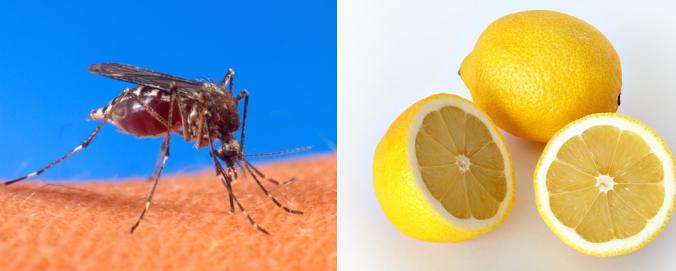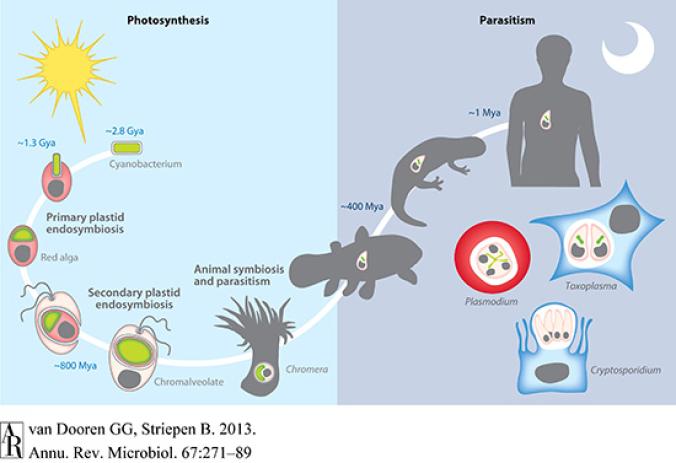
Parasites are life’s great success story, abundant in both species and sheer numbers. One secret to their success is the ability that many parasites have to manipulate their hosts. By pulling strings like a puppet master, they use their hosts to advance towards their own goal of planetary conquest. Creepy is the best word to describe most of their strategies. They turn some hosts suicidal. They castrate others. They turn still others into zombie bodyguards. But a new study published today suggests that the parasite that causes malaria may use a more pleasant strategy. It lures mosquitoes to infected hosts with a lemony scent.
Malaria is caused by single-celled parasites called Plasmodium. A female mosquito carries them in its gut as it flies around in search of a victim to bite. After the parasites mature, they push through the insect’s gut wall, eventually making their way into its salivary glands. When the mosquito lands on a person and drills into the skin, it pushes some of its Plasmodium-laden saliva into the wound.
The parasites now begin their long journey through the human body. They get pushed by the surges of the bloodstream to the liver, where they invade cells and multiply inside them. The infected liver cells erupt with the next stage of Plasmodium’s life cycle, called merozoites. The merozoites end up back into the bloodstream, where they now invade red blood cells. They multiply yet again, rupturing the blood cells and invading new ones. Eventually the parasites achieve the next stage in their life cycle, when they’re ready at last to get sucked up by a hungry mosquito in a meal of blood.
If Plasmodium can’t get into a mosquito, all of this multiplication is for naught. So anything that the parasite can do to increase the odds of a successful exit can potentially be favored by natural selection. Last year, for example, a team of researchers found that mosquitoes were attracted to mice infected with Plasmodium parasites–but only when they were ready to leave their rodent host. The scientists found evidence that the parasites engineer this attraction by changing the odor of the mice. Infected mice give off odor molecules that draw mosquitoes to them.
Those scientists speculated that perhaps the parasite alters its hosts chemistry to make new odors. But recently Audrey Odom of Washington University and her colleagues raised another possibility: maybe the parasites themselves produce mosquito-attracting chemicals.
Other scientists had explored this possibility before without much to show for their efforts. But Odom and her colleagues suspected that previous researchers hadn’t looked hard enough. So the Washington University team added Plasmodium to much larger volumes of blood than before–400 milliliters–and then snagged odors rising off the blood with more sensitive traps. The efforts paid off: Odom and her colleagues found that when Plasmodium infected red blood cells, it produced chemicals called pinene and limonene.
You have probably smelled these chemicals before. Pinene is part of the blend of odors that make up the scent of pine trees. Limonene gets its name from lemons, which produce it in their rinds.
If you’re confused at this point about a single-celled blood parasite producing a fragrant odor, you have every right to be. To make sense Odom’s weird discovery, we have to take a sharp detour through more than a billion years of evolution.

It’s 1.3 billion years ago. The planet is ruled by bacteria and protozoans. Animals and plants won’t evolve for many hundreds of millions of years. On the surface of the ocean, some bacteria are capturing sunlight with photosynthesis, while protozoans are preying on them. Somehow, this story goes off-script, and some protozoans end up with photosynthetic bacteria trapped inside them. Instead of becoming food, the bacteria supply the food, powering the protozoans with photosynthesis. Over many generations, the bacteria become an inseparable part of their host. The combination of these two kinds of life become a new kind, which we call algae.
This primordial algae had many descendants. Some of them evolved into green algae, and eventually gave rise to plants on land. Another lineage of algae were swallowed up by yet another protozoan, and became another form of algae found on Earth today, known as red algae. Some red algae live now as free-floating photosynthesizers in the ocean. Others took up inside corals, providing coral animals with sustenance from the sun. And still other red algae became parasites of animals. Some of these parasites eventually became Plasmodium.
Plasmodium’s ancestors lost the ability to photosynthesize a long time ago. But they still hold onto some of the ancestral enzymes from the bacteria that their forebears swallowed 1.3 billion years ago. As a result, Plasmodium is weirdly similar to flowers and trees. Some scientists have even taken advantage of this evolutionary kinship by looking at weed-killers as potential drugs for malaria.
This ancient heritage also explains why Plasmodium can smell like lemons. Odom and her colleagues found that the parasite make pinene and limonene using enzymes that are related to the ones that plants use to make these chemicals.
There are reasons to think that the parasite are using these chemicals to lure mosquitoes. While we’re painfully aware of the appetite mosquitoes have for blood, the fact is that mosquitoes also feed on flower nectar. They depend on the nectar for sugar they need to fuel their flights. Many insects are keenly sensitive to certain colors and odors that flowers produce, which guide them reliably to their next meal of nectar. Odom and her colleagues found that the antenna of malaria-carrying species of mosquitoes are exquisitely sensitive to pinene and limonene. If you want to attract mosquitoes, it makes sense to make those chemicals.
While this research is tantalizing, it is only the first step in testing the hypothesis that Plasmodium makes a fragrant odor to lure its next host. So far, Odom and her colleagues have only demonstrated that the parasites are making these chemicals inside red blood cells. It’s certainly conceivable that in a living host, these odors could escape into the lungs and leave the body with exhaled air. It remains to be seen if they really do get out, and if they make a difference to the success of Plasmodium. Or perhaps this parasite perfume has some other function, and it remains bottled up inside sick hosts.
(For more examples of parasite manipulation, see my cover story in the November 2014 issue of National Geographic or my book Parasite Rex.)
Reference: Kelly M, Su C-Y, Schaber C, Crowley JR, Hsu F-F, Carlson JR, Odom AR. 2015. Malaria parasites produce volatile mosquito attractants.mBio 6(2):e00235-15. doi:10.1128/ mBio.00235-15.
[Update: Link to paper fixed]
Originally published March 24, 2015. Copyright 2015 Carl Zimmer.